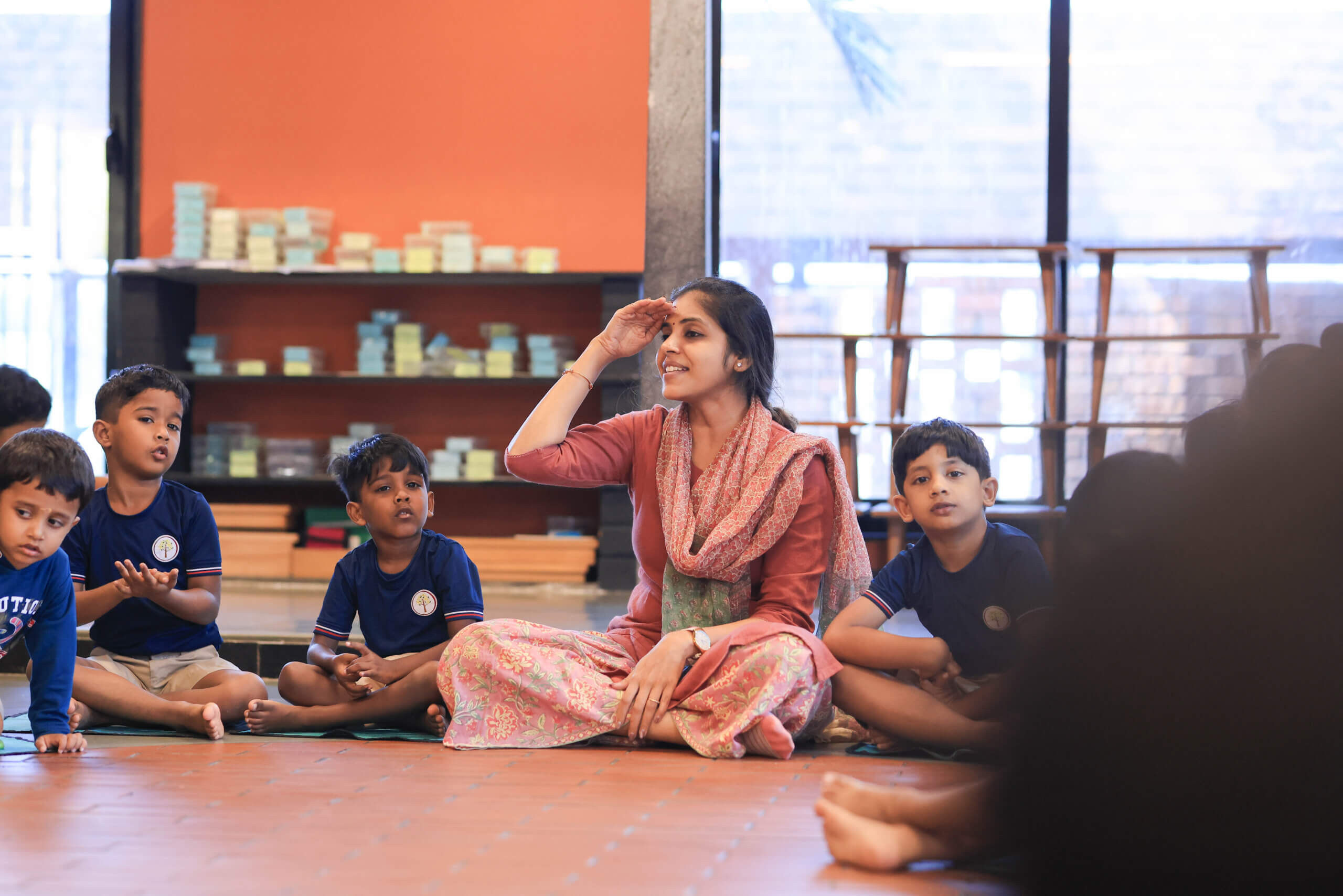
At Darwin Public School, we offer the perfect blend of educational approaches to ensure your child’s all-round development. Our Montessori curriculum in the early years provides a strong foundation, fostering independence, creativity, and a love for learning through self-directed exploration. This method cultivates essential life skills, emotional intelligence, and cognitive growth during the most critical stages of brain development.
As students progress, our ICSE curriculum takes over, offering a comprehensive, globally recognized educational framework that builds on this solid foundation. With its emphasis on holistic learning, critical thinking, and analytical skills, the ICSE prepares students to face the challenges of the modern world with confidence. This seamless combination ensures that students are well-equipped for academic success and personal growth, nurturing both their minds and their hearts.
The Montessori Approach
“The child who concentrates is immensely happy” – Maria Montessori
Maria Montessori’s revolutionary approach to education was far ahead of her time. Her core belief that learning should be self-directed and focus on developing the whole person uniquely equips children for today’s fast-paced world. Montessori education is designed to empower your child by meeting their individual developmental needs. With a purposefully structured environment and expertly trained teachers, Montessori ensures that your child is exposed to what they need, exactly when they are ready to learn.
At Darwin Public School, we believe that every child’s journey is unique. Our Montessori teachers are trained to observe and respond to the specific developmental stages of each child, creating an environment that fosters personalized learning. By honoring where children are in their growth, we provide the right balance of support and challenge, allowing them to explore their interests and develop at their own pace.
Montessori classrooms at Darwin are designed to inspire. With natural materials, open spaces, and thoughtfully arranged learning areas, our classrooms invite children to explore both individually and in groups. From plants and animals to sunlight streaming through large windows, our beautiful classrooms not only encourage learning but also promote creativity and joy in every task.
At Darwin, Montessori is more than a curriculum—it’s a foundation for a fulfilling and enriched life of learning.
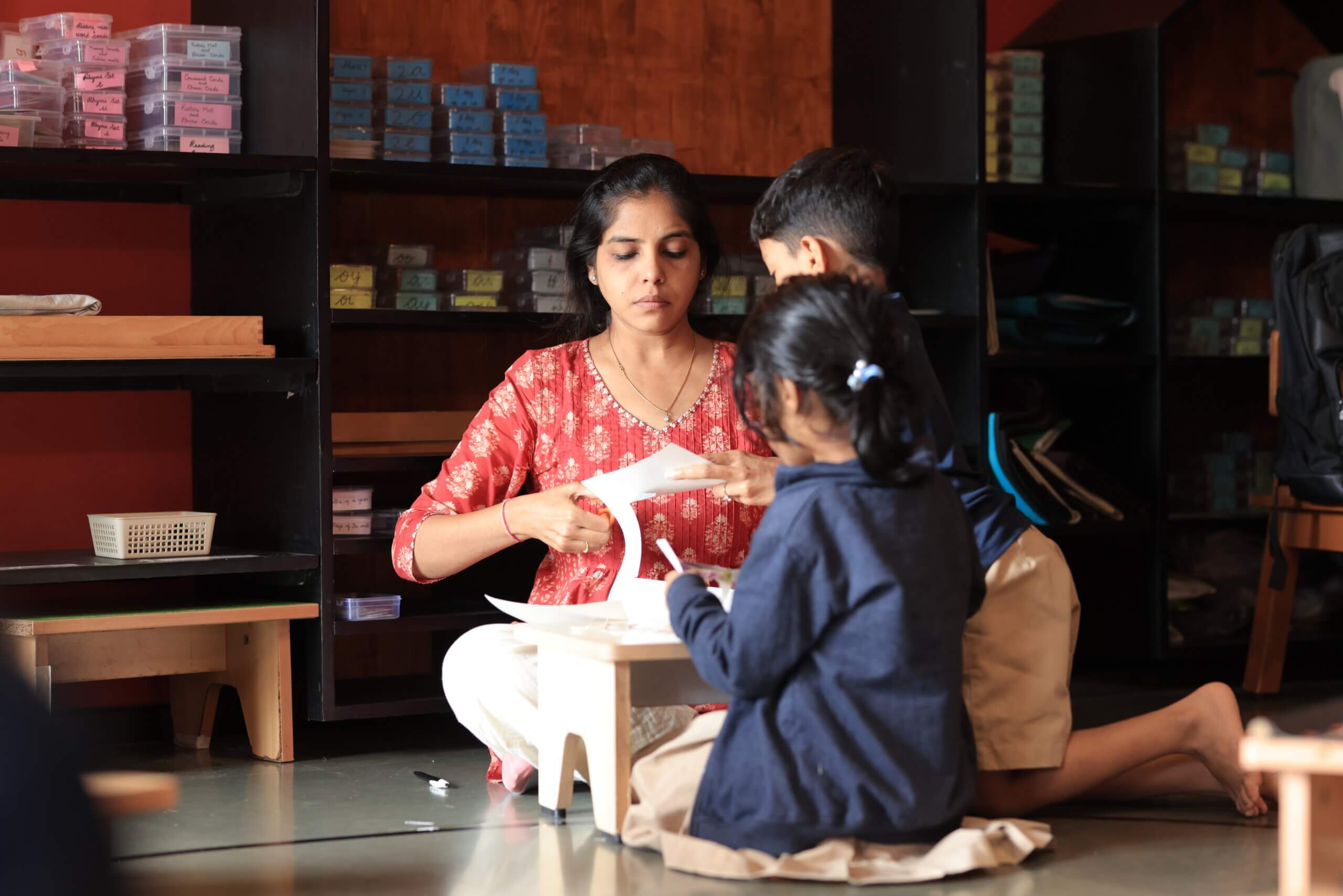
Overview
The early years of a child’s life are a critical period for brain development, with 90% of the brain’s growth occurring before the age of five. During this time, the neural connections that shape learning, behavior, and emotional well-being are rapidly forming. Research in neuroscience shows that early interventions focused on social-emotional learning and well-being can have profound, long-lasting effects. Children who receive strong emotional and social support during their formative years are more likely to excel academically, form healthy relationships, and develop resilience. Studies indicate that children exposed to social-emotional learning early on show a 10% increase in academic performance.
At Darwin, we’ve integrated these findings into our Montessori program to ensure that emotional well-being, social competence, and cognitive skills are developed in harmony. This approach not only prepares children for academic challenges but also builds a strong foundation for lifelong learning, confidence, and personal fulfillment.
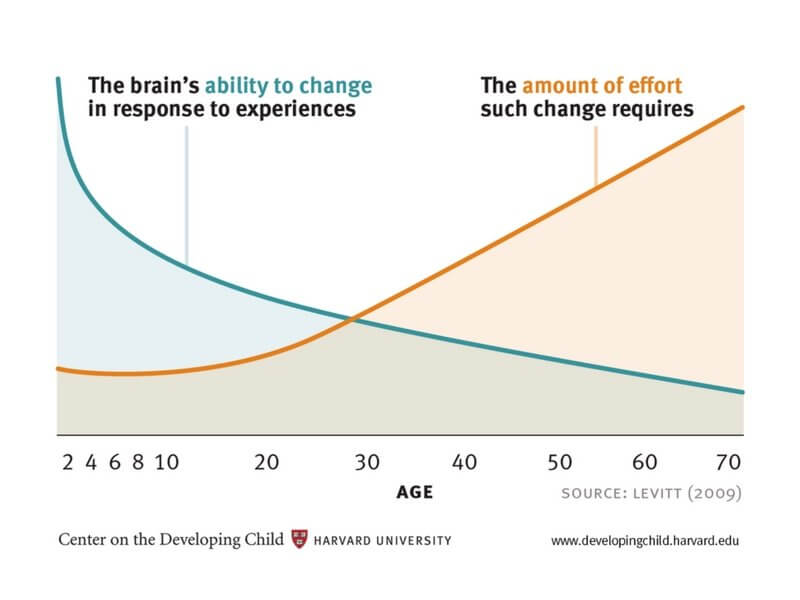
About Montessori
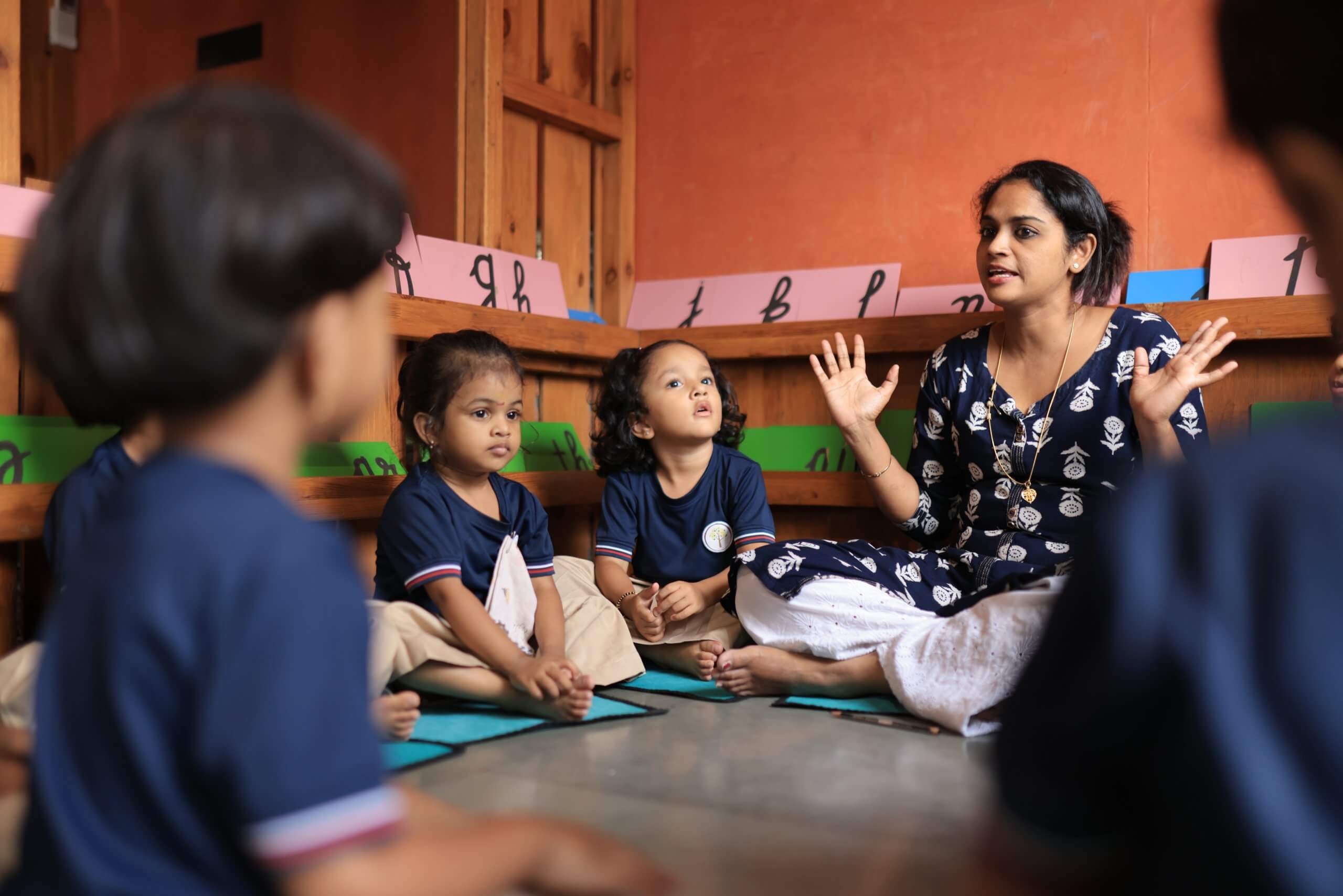
What is Montessori?
Montessori is an innovative educational approach developed by Dr. Maria Montessori in the early 20th century, centered on the belief that children learn best in environments that support their natural curiosity and desire for independence. This child-centered method recognizes that each child is unique, allowing them to learn at their own pace through self-directed activities. Montessori philosophy emphasizes the holistic development of the child—cognitive, emotional, social, and physical—integrating arts, practical life skills, and social-emotional learning into the curriculum.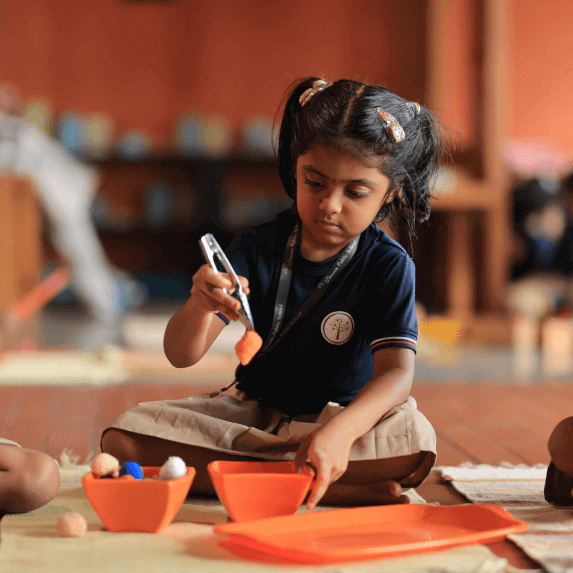
Why Choose Montessori?
Choosing Montessori means giving your child an education that nurtures their development in a holistic, individualized way. With a focus on early brain development, Montessori supports emotional well-being, social skills, and cognitive growth in harmony, laying a strong foundation for lifelong learning. With research-backed methods and environments designed to meet their unique needs, Montessori prepares children not just for academic success, but for life—empowering them to grow into capable, compassionate, and confident individuals.Key Features of the Montessori Curriculum
Core Components of Montessori Curriculum
EXPERIENCE OUR INNOVATIVE
EDUCATIONAL MODEL .
